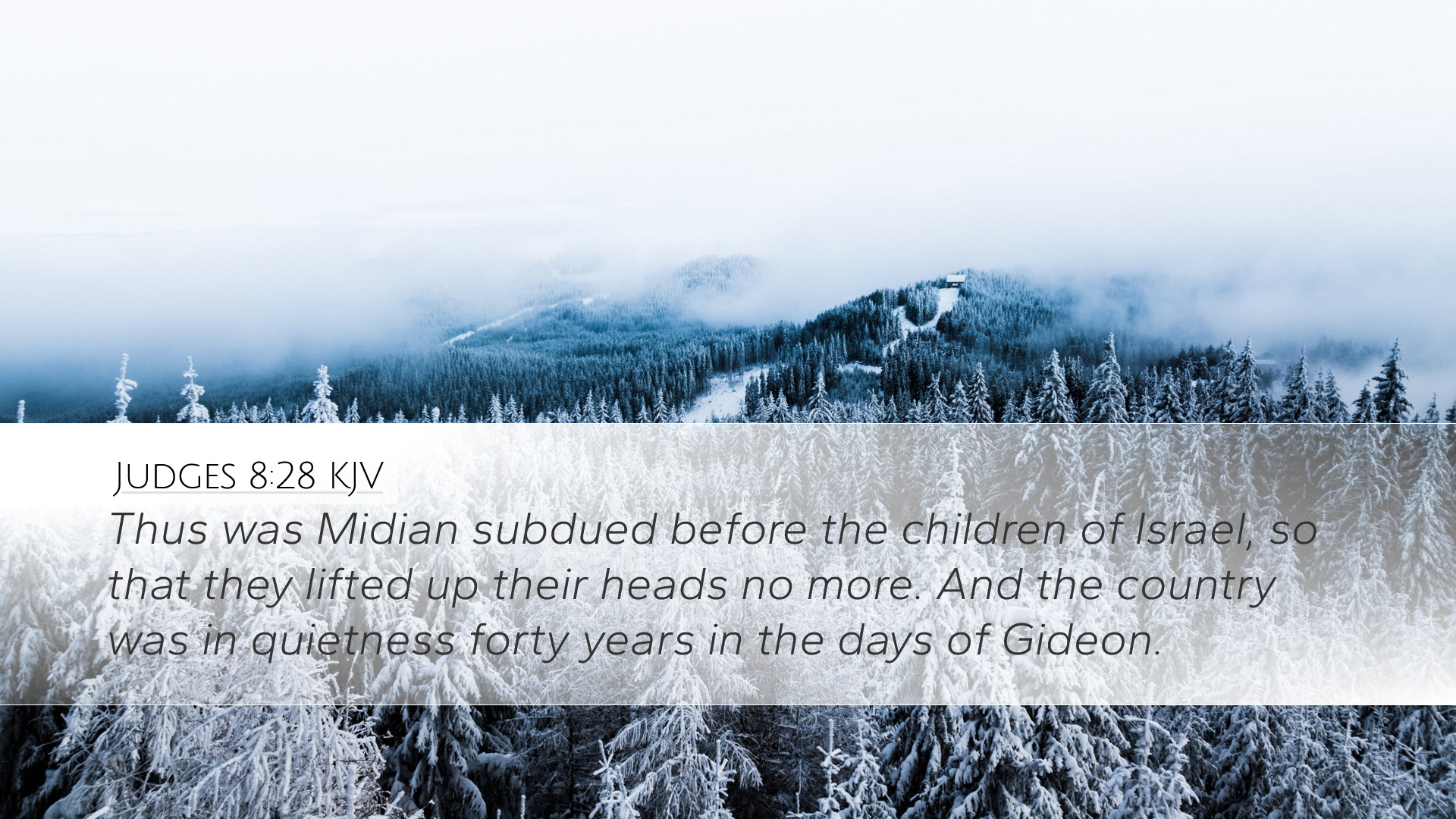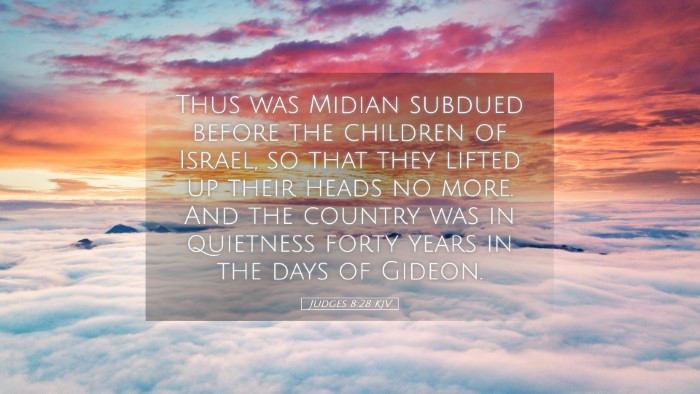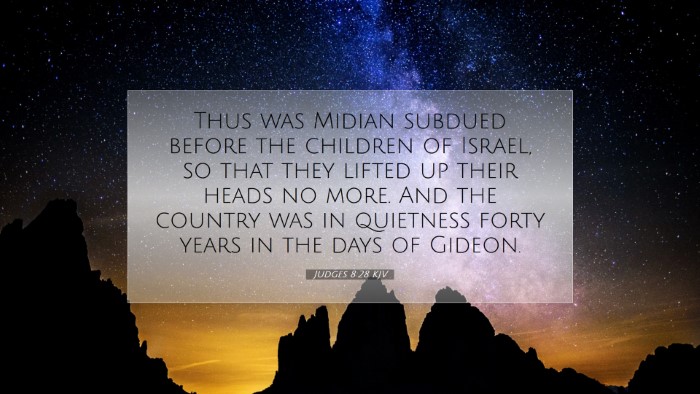Commentary on Judges 8:28
Judges 8:28 states: "Thus was Midian subdued before the children of Israel, so that they lifted up their heads no more: and the country was in quietness forty years in the days of Gideon." This passage concludes the narrative of Gideon's victory over the Midianites, emphasizing both the significance of the victory and the subsequent peace that ensued for Israel.
Overview of the Context
The book of Judges recounts the cycle of Israel’s sin, oppression, repentance, and deliverance. Gideon's story showcases the themes of divine deliverance and human leadership. In this context, the defeat of Midian is not only a military triumph but also a pivotal moment reflecting God's sovereignty and faithfulness to His covenant people.
Insights from Public Domain Commentaries
Matthew Henry's Commentary
Matthew Henry reflects on the comprehensive nature of Midian's defeat. He points out that the phrase "lifted up their heads no more" signifies a complete subjugation of Midian, contrasting the previous oppression that Israel experienced and emphasizing the fortitude of Gideon as God's chosen judge. Henry notes:
"When God delivers, He delivers completely; Israel was freed from the terror of their enemies, and this temporary tranquility served as a reminder of the Lord's provision."
Albert Barnes' Notes on the Bible
Albert Barnes elaborates on the peace that followed Gideon's victory, highlighting its duration of forty years. This temporal peace is portrayed as a reward for Israel's obedience, as they had trusted in God's deliverance through Gideon. Barnes states:
"Forty years is a substantial length of time that should compel reflection upon Israel's fidelity and faithfulness to God, which is often compromised in subsequent generations."
Adam Clarke's Commentary
Adam Clarke offers a detailed treatment of the implications of this verse. He emphasizes the significance of the tranquility that followed Gideon's military success. Clarke writes:
"The peace achieved under Gideon's leadership epitomizes the reward of divine intervention; however, such conditions are contingent upon Israel's adherence to Yahweh’s commands."
Thematic Reflections
-
Divine Sovereignty:
The victory over Midian illustrates God's control over Israel's fate. Through Gideon, God showcases His power to liberate His people, thereby reinforcing that true victory lies in divine orchestration rather than mere military prowess.
-
Human Leadership:
Gideon's role as a judge marks him as a faithful servant, leading Israel away from idolatry and towards covenant faithfulness. His leadership serves as a model for future leaders to guide their communities toward reliance on God.
-
Peace and Consequences:
The peace that lasted forty years invites contemplation on the cyclical nature of Israel's history, where prevailing tranquility is often followed by moral and spiritual decline. This verse encourages leaders and congregants alike to cultivate lasting faithfulness in the midst of peace.
Pastoral Applications
For pastors and church leaders, this passage serves as a reminder of the importance of seeking God’s guidance in leadership roles. Gideon’s story highlights the necessity of obeying God to experience His peace. It challenges leaders to foster environments that encourage faithfulness among their congregations.
Conclusion
Judges 8:28 encapsulates a crucial moment in Israel’s history, demonstrating God's power to deliver and the subsequent peace that follows obedience. The insights derived from the commentaries of Matthew Henry, Albert Barnes, and Adam Clarke enrich our understanding of this text, emphasizing themes of divine sovereignty, the weight of human leadership, and the importance of sustained faithfulness. As scholars and practitioners of the Word, it is essential to engage with these themes, allowing the narrative to inform and inspire our faith journeys.


